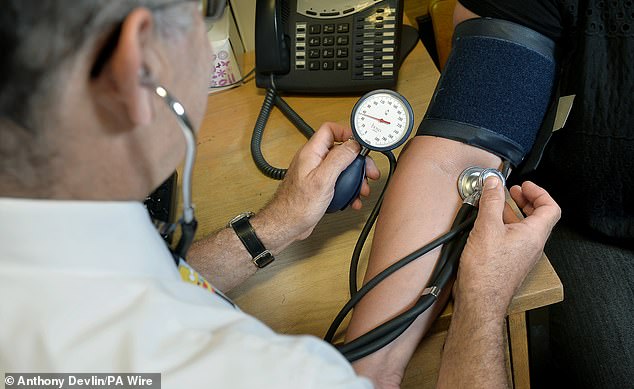Regularly drinking more than four cups of coffee a day may increase the risk of fatal heart disease, a study suggests.
Researchers found that drinking more than 400 milligrams of coffee per day was linked to a slow increase in heart rate and blood pressure over time.
The team believes that caffeine’s effect on increased heart rate and blood pressure causes wear and tear on blood vessels and the heart, weakening and damaging them.
This can eventually lead to an individual developing a heart attack, stroke or heart failure, they concluded.
There are approximately 90 mg of caffeine in a 236 ml filter coffee. Researchers said drinking more than 400 mg a day increases the likelihood of developing cardiovascular problems.
“Because of its effect on the autonomic nervous system, regular caffeine consumption may put otherwise healthy individuals at risk for hypertension and other cardiovascular events,” said study author Dr. Nency Kagathara.
Dr. Kagathara and a team of researchers from Zydus Medical College and Hospital of India came to these conclusions after studying 92 people with healthy hearts.
They tested each individual’s heart rate and blood pressure before and after performing a three-minute cardiovascular exercise.
They also recorded information about their demographics and caffeine consumption, including whether they preferred coffee, tea or soda.
Nearly 20 percent of participants consumed more than 400 mg of caffeine each day.
That’s equivalent to two Celsius energy drinks or 11 Coca-Colas. For comparison, a Starbucks Venti cold brew coffee has 310 mg.
The CDC and NHS recommend that people drink no more than 400 mg per day; for pregnant and breastfeeding women, the guidelines are lower.
People who consumed more than 400 mg per day were significantly more likely to have elevated blood pressure and heart rate overall and after completing the three-minute cardio session.
The researchers caution that their results could also be due to other differences between participants, such as their activity levels, age or other dietary habits.
But still, Dr. Kagathara said, “raising awareness of these risks is vital to improving heart health for everyone.”
People who were most likely to consume excessive caffeine in this way were women who lived in urban areas and worked in a business environment.
These findings were presented at the American College of Cardiology Asia 2024 conference and have not yet been published in a scientific journal.

Drinking more than 400 mg of caffeine a day can cause chronically high blood pressure, the researchers explained, which can increase the likelihood of developing cardiovascular problems such as stroke.
In short episodes, high blood pressure is harmless.
But consistently high blood pressure puts strain on the body’s blood vessels and heart muscles, which can lead to heart attacks, strokes, heart failure, kidney problems, vascular dementia and eye problems.
A chronically high heart rate can cause similar complications.
Caffeine is the most widely consumed drug in the world. It works by temporarily blocking brain receptors that regulate sleep, memory, attention and learning.
This increases oxygen flow to the brain, speeds up your heart rate and improves concentration, which together can help you feel more awake.
It can also cause an increase in blood pressure. In large amounts, it can cause some unpleasant side effects, such as headache, nausea, anxiety, nervousness, increased body temperature, and facial flushing.
In fact, if you drink more than 5,000 mg of caffeine, it can be fatal, according to the Center for Addictions and Mental Health.
But older studies support the idea that drinking caffeinated beverages in moderation is not harmful.
In fact, drinking a small amount of tea a day has been shown to help gut health and reduce the risk of heart disease.
Some studies have even suggested that consuming a moderate amount of coffee daily could help people who work in offices live longer.

